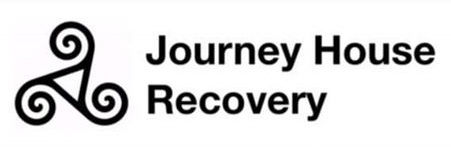Auburn Women’s Recovery House
Journey House must raise $10,000 to make our Auburn recovery house a possibility! Please donate online by PayPal at www.paypal.me/journeyhousemaine or by credit card at donorbox.org/support-journey-house-recovery. You may also send us a check at PO Box 8065, Portland, ME 04104. Thank you for your support!
Women interested in applying, please read the Participant Agreement, and fill out the online application.
High Quality
Journey House operates 3 of the 12 houses statewide to be certified by the Maine Association of Recovery Residences (as of 9/30/18).
Low-cost
$200 move-in fee. $500/mo for months 1-3, $450/mo for months 4-6, then $400/mo.
Over 50% of our residents have paid nothing at time of moving in, and are awarded scholarships and/or put on payment plans.
Low-barrier
Not necessary: insurance, clean record, money, good credit, etc.
Necessary: desire and willingness to work strong program of personal recovery.
Journey House cannot house individuals convicted of arson or sex offenses.
Journey House cannot house individuals requiring inpatient or other higher level of care.
Peer-run
Run by individuals in recovery. Together Program Directors Eric, Crystal, and Jesse have a combined 9 years of recovery.
Jesse, Program Director for Androscoggin County, is certified in Intentional Peer Support (IPS) through the State of Maine and Recovery Coach Academy (RCA) through CCAR.
Evidence-based
Recovery-oriented housing itself is an Evidence Based Practice (EBP)
Destigmatized and person-first language is shown to increase rates of help-seeking behavior and improve clinical outcomes in individuals with SUD.
Journey House proudly affirms and supports multiple pathways to recovery
Prescribed medication is allowed and is stored safely in double locked system and self-administered using Daily Observed Therapy (DOT).
Residents are connected with community providers to provide such EBPs as counseling, CBT, DBT, medication, etc.
Recovery-oriented
Expectations include mandatory urinalyses, pro-social events, weekly house meetings, household chores, and adherence to treatment plans, probation requirements, etc.
Additional layer of structure and peer support provided by house leadership.
Community-focused
Requirement to interact positively and productively with all members of community.
Monthly requirement of 5 hours of community service per resident.
Collaborative
Seeking strong relationships with medical, law enforcement, social services, employment and education providers, etc. to better integrate residents back into society and a productive life.
Highly cost-effective
Cost savings for municipality, county, and state agencies, as well as hospitals, etc. Reduced incidence of alcohol- and drug-related crime and acute and chronic health conditions.
What Journey House needs from L/A providers and other stakeholders:
-
Spreading the word about Journey House and the recovery house model
-
Extinguishing negative attitudes toward SUD, recovery, and recovery-oriented housing
-
Referrals, as well as connections with peer leaders who would be interested in applying to join the organization (eg. a live-in house manager or peer mentors, etc.)
-
A holistic and integrative understanding of what recovery-oriented housing is and how you or your agency can interface with our organization and its residents. Examples include:
-
Providing case management
-
Assisting with in-house therapeutic, peer support, or other groups
-
Acupuncture, nutrition classes, resume writing workshops, etc.
-
Committing to drive residents weekly to a mutual aid group / meeting, etc.
-
Donations, especially in the beginning:
-
Furniture, appliances, cookware, art, and household items
-
Financial contributions
-
Professional services
-
Legal, financial, etc.
-
Making a collective impact
Any questions, concerns, or suggestions, please email Founder & Program Director Jesse Harvey at [email protected]
